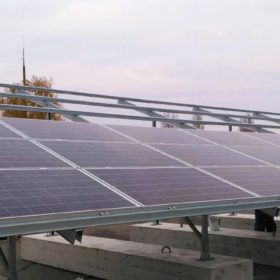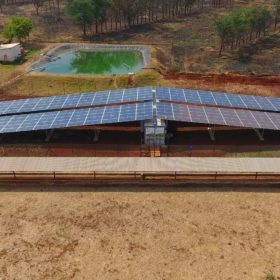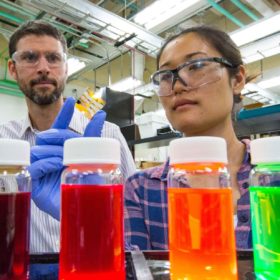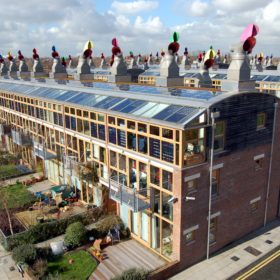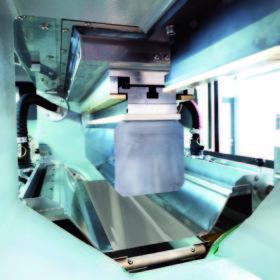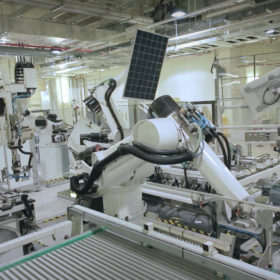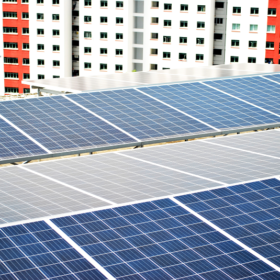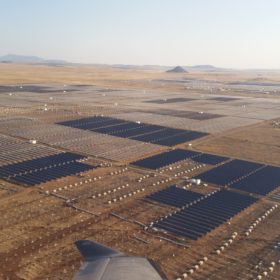Construction underway on first PV array for Chernobyl
Project developer Rodina today announced that construction is underway on the first solar power plant to be built on land inside the Chernobyl exclusion zone.
BayWa r.e. connects pilot PV+storage project in Zambia
German PV developer BayWa r.e. has completed an 86 kW PV + storage project, which will power irrigation equipment for farmers in Zambia. The project marks Baywa r.e.’s first entrance on to the African continent, where the company says it has significant plans for expansion.
NREL hits new efficiency record for quantum dot cell
Scientists at the U.S. Department of Energy’s National Renewable Energy Laboratory (NREL) have created a solar cell using colloidal quantum dots, which achieved 13.4% conversion efficiency – a new world record for this emerging technology.
UK: Government survey shows strong public support for solar
Latest results from an ongoing public survey conducted by the British government show that support for solar and renewables is strong and growing across the country. Industry associations continue to call for better policies to support growth in renewable energy.
Meyer Burger to end manufacturing in Switzerland
Equipment manufacturer Meyer Burger plans to end production at its headquarters site in Thun, Switzerland, as part of an updated cost efficiency program. All production activities in Thun will be discontinued by the end of 2018, though the site will continue to serve as Meyer Burger’s headquarters.
REC Group places equipment order with Aurora Solar Tech
Aurora Solar Technologies today announced that it has received an order from Norway headquartered vertically integrated PV manufacturer REC Group for its inline cell measurement equipment. The order is expected to ship in January 2018.
Singapore announces 50 MW rooftop PV tender
Singapore’s Housing and Development Board has launched its latest tender for 50 MW of new PV capacity under the SolarNova program. This will be largest tender so far in the SolarNova series, involving several new government agencies.
Scatec Solar issues $92 million in green bonds
Norwegian based project developer Scatec Solar has announced the successful placement of NOK 750 million ($92 million) in unsecured green bonds.
Czech solar association calls for policies to support industry growth
As Czech politicians negotiate to form a coalition government after the recent elections, the country’s solar association Solarni Asociace calls for stability, and warns incoming policymakers against the politicization of supporting for solar.
Berkeley scientists boost battery capacities
Scientists at the U.S. Department of Energy’s Lawrence Berkeley National Laboratory have made progress with cathodes made from ‘disordered’ materials, a technology which could greatly increase the storage capacity of lithium batteries.

